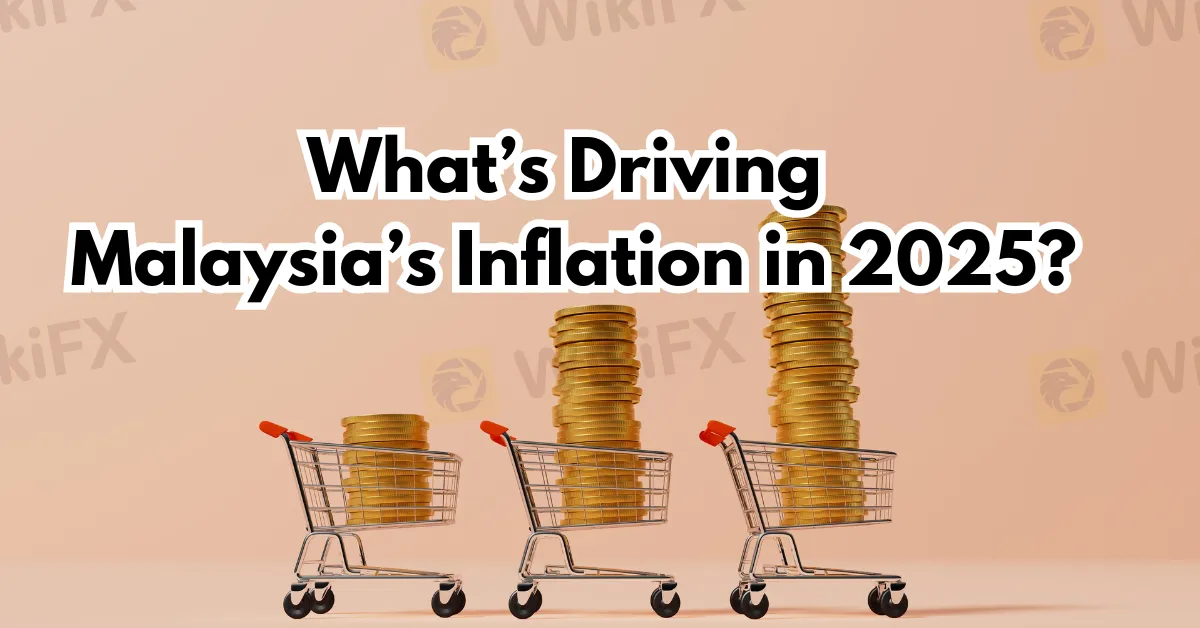PU Prime Launches “The Grind” to Empower Traders
Discover PU Prime’s new campaign, “The Grind,” and learn how trading discipline builds long-term success. Watch and start your trading journey today!
简体中文
繁體中文
English
Pусский
日本語
ภาษาไทย
Tiếng Việt
Bahasa Indonesia
Español
हिन्दी
Filippiiniläinen
Français
Deutsch
Português
Türkçe
한국어
العربية
Abstract:Inflation in Malaysia is projected to rise to as much as 2.8% in 2025, driven by domestic policy adjustments, wage increases, and external market fluctuations.

Inflation in Malaysia is projected to rise to as much as 2.8% in 2025, driven by domestic policy adjustments, wage increases, and external market fluctuations. Analysts attribute this upward trend to government measures such as subsidy rationalisation, higher taxes, and global commodity price volatility.
MIDF Research has forecasted that full-year inflation could reach 2.8%, largely due to policy shifts, including the rationalisation of subsidies introduced earlier this year. Similarly, Hong Leong Investment Bank has predicted an inflation rate of 2.7% year-on-year (y-o-y) for 2025, citing factors such as cuts to fuel subsidies, the expansion of the sales and service tax (SST), and wage hikes.
In December 2024, inflation eased to 1.7%, falling below earlier projections. This moderation reflected slower increases in costs related to personal care, social protection, and miscellaneous goods and services. The consumer price index (CPI) showed a smaller expansion compared to the 1.9% recorded in November, though it remained above the 1.5% rise reported in December 2023.

Despite this temporary slowdown, analysts expect inflationary pressures to return by mid-2025. BIMB Securities Research has stated that inflation is likely to increase gradually, projecting a full-year rate of 2.7% compared to 1.8% in 2024. Key drivers include the ripple effects of higher taxes and wages, base effects, and continued volatility in global markets.
Domestic policies are expected to play a significant role in shaping the inflation trajectory for 2025. BIMB Securities Research highlighted several key factors, including the mid-year adjustment of RON95 fuel subsidies, the minimum wage hike in February, and changes to the SST framework in May. These measures are anticipated to raise both operating costs and consumer prices.
External factors are also expected to amplify inflationary pressures. Analysts have pointed to fluctuations in global commodity prices, currency volatility, and potential changes in US policies as significant risks. Recent developments, such as rising oil prices due to sanctions on Russia and trade war concerns stemming from the US, have already heightened market uncertainty.
Global inflation trends are another area of concern. MIDF Research noted that inflation in other economies has shown signs of re-acceleration. For example, the United States experienced a rise in headline inflation to 2.9% y-o-y in December 2024, while core CPI eased slightly to 3.2% y-o-y. Similarly, Europe saw headline inflation climb to 2.4% y-o-y, with core inflation remaining steady at 2.7% y-o-y.
In Asia, inflationary patterns varied. China faced deflationary risks, as its headline CPI inflation slowed to 0.1% y-o-y, reflecting weak domestic demand. However, other regional economies, including Indonesia, Thailand, and the Philippines, recorded modest increases in their CPI inflation.

Disclaimer:
The views in this article only represent the author's personal views, and do not constitute investment advice on this platform. This platform does not guarantee the accuracy, completeness and timeliness of the information in the article, and will not be liable for any loss caused by the use of or reliance on the information in the article.

Discover PU Prime’s new campaign, “The Grind,” and learn how trading discipline builds long-term success. Watch and start your trading journey today!

IG boosts FCA compliance by integrating Adclear’s AI tools. Learn how automation accelerates marketing approvals and ensures regulatory accuracy.

Join forex expert Tom as he shares his journey, trading wisdom, and thoughts on AI and the future of forex in WikiFX’s inspiring “Inside the Elite” interview.

Robinhood is reinventing stock trading with tokenized, 24/7 equities on the blockchain—ending settlement delays and redefining how markets move.
